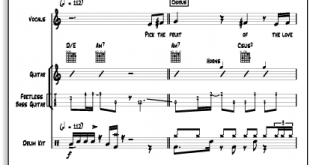from Lars Syll It is a great fault of symbolic pseudo-mathematical methods of formalising a system of economic analysis … that they expressly assume strict independence between the factors involved and lose all their cogency and authority if this hypothesis is disallowed; whereas, in ordinary discourse, where we are not blindly manipulating but know all the time what we are doing and what the words mean, we can keep “at the back of our heads” the necessary reserves and qualifications and...
Read More »The work habits of highly successful mathematicians, mostly to make you feel bad about your day today
On any given day, Huh does about three hours of focused work. He might think about a math problem, or prepare to lecture a classroom of students, or schedule doctor’s appointments for his two sons. “Then I’m exhausted,” he said. “Doing something that’s valuable, meaningful, creative” — or a task that he doesn’t particularly want to do, like scheduling those appointments — “takes away a lot of your energy.” To hear him tell it, he doesn’t usually have much control over what he decides to focus...
Read More »Calculus for Economists
Gabriel Sterne complains about economists' loose use of mathematical terminology: Of course, it's not just economists who use "increase" and "accelerate" interchangeably. But economics is a mathematical discipline, and in mathematics, "increase" and "accelerate" mean different things. So is Gabriel's observation true, and if it is, is it a problem?To test Gabriel's hypothesis, I ran a little Twitter test. I asked this question: This was of course far from rigorous: the sample was...
Read More »Political Calculations — Maths on the Back of an Envelope
Fun on one hand but it finishes with an estimate of the effect of the coronavirus epidemic on the Chinese economy, so read to the end. Political CalculationsMaths on the Back of an Envelope
Read More »Probability for geeks
The Lightning network is being touted as the solution to Bitcoin's scaling problems. If lots of transactions can be taken off the main chain, the thinking goes, then Bitcoin can still take over the world despite its considerable performance problems. Lightning enthusiasts say that when fully enacted, the network will be able to process millions of transactions at, er, lightning speed, without compromising decentralisation, security or transparency.But there are dissenting voices. For...
Read More »Calculus for journalists
“What do they teach them at these schools?” wondered the Professor in C.S. Lewis's The Lion, the Witch and the Wardrobe. The Professor, of course, was concerned about logic. But I wonder too - not about logic, but about maths. Especially among journalists writing about life expectancy and other long-term trends.Here is the FT proclaiming "Average life expectancy falls". This is the headline for a chirpy piece about how reduced life expectancy could make things easier for pension funds...
Read More »No, please don’t show me your model
Unsurprisingly, on my post "The Art of Economics", which attempted to put the mathematical models beloved of mainstream economics firmly in their place, is a comment defending mainstream mathematical models. Here it is, in part: Secondly, you definitely don't need obscure heterodox models to predict a financial crisis. I've cited it before, but for instance Kiyotaki-Moore basically sketches out how a crisis like this can occur. There are actually plenty of examples of perfectly fine...
Read More »The art of economics
Over at Bloomberg View, Noah Smith has a pop at what he calls “heterodox economics”. By this he means the new ideas in economic thinking that have sprung up since the 2008 financial crisis but so far haven’t made it into mainstream economic journals.Noah starts by admitting that mainstream economics abjectly failed to predict the crisis and gave little or no guidance on how to deal with it. Because of this, according to Noah, “many people have looked around for an alternative paradigm --...
Read More » Heterodox
Heterodox






